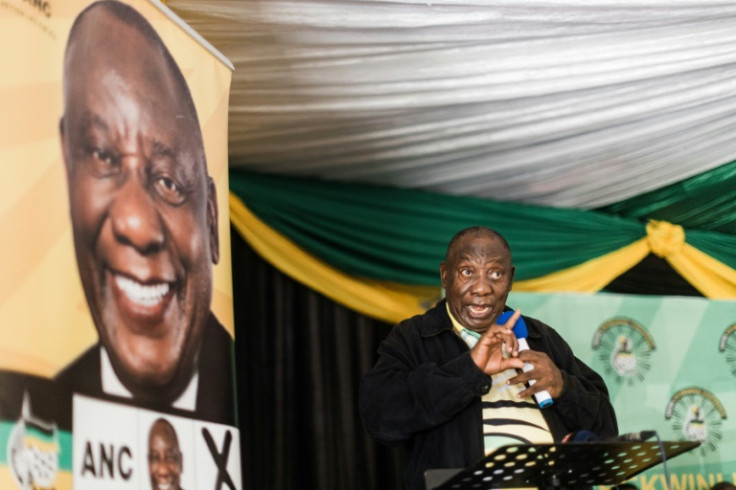
President Cyril Ramaphosa touted South Africa's achievements under his party's leadership on Saturday as the country celebrated 30 years of democracy a month before its most consequential election in decades.
South Africans head to the polls on May 29, three decades after the first democratic election in 1994 ended white-rule, bringing Nelson Mandela and the African National Congress (ANC) party to power.
"South Africa today is an infinitely better place than it was 30 years ago," Ramaphosa said in a speech marking "Freedom Day" at the Union Buildings, the seat of government, in Pretoria.
The 71-year-old used the occasion to list improvements shepherded by the ANC, which is struggling in the polls and risks losing its outright parliamentary majority for the first time.
"We have pursued land reform, distributing millions of hectares of land to those who had been forcibly dispossessed," he said.
"We have built houses, clinics, hospitals, roads and constructed bridges, dams, and many other facilities. We have brought electricity, water and sanitation to millions of South African homes."
An Ipsos poll released on Friday showed support for the ruling party, which won more than 57 percent of the vote at the last national elections in 2019, has fallen to just over 40 percent.
Were it to win less than 50 percent, the ANC would be forced to find coalition partners to remain in power.
The party's image has been badly hurt by accusations of graft and its inability to effectively tackle poverty, crime, inequality, and unemployment, which remain staggeringly high.
Ramaphosa acknowledged the problems, but denounced critics as people who wilfully "shut their eyes".
"We have made much progress and we are determined to do much more," he said.
About two-thirds of respondents to the Ipsos poll said the country was moving in the wrong direction.
"They promised us dreams, but they delivered only nightmares," John Steenhuisen, the head of the leading opposition party, the Democratic Alliance (DA), said in a rival address in the battleground province of KwaZulu-Natal.
"True freedom is only possible when you have a job to meet the needs of your family and to build a better future."
Ipsos found support for the DA was almost 22 percent.
The leftist Economic Freedom Fighters (EFF) are forecast to garner 11.5 percent of preferences, followed by the upstart uMkhonto we Sizwe (MK) led by former President Jacob Zuma at 8.4 percent.







